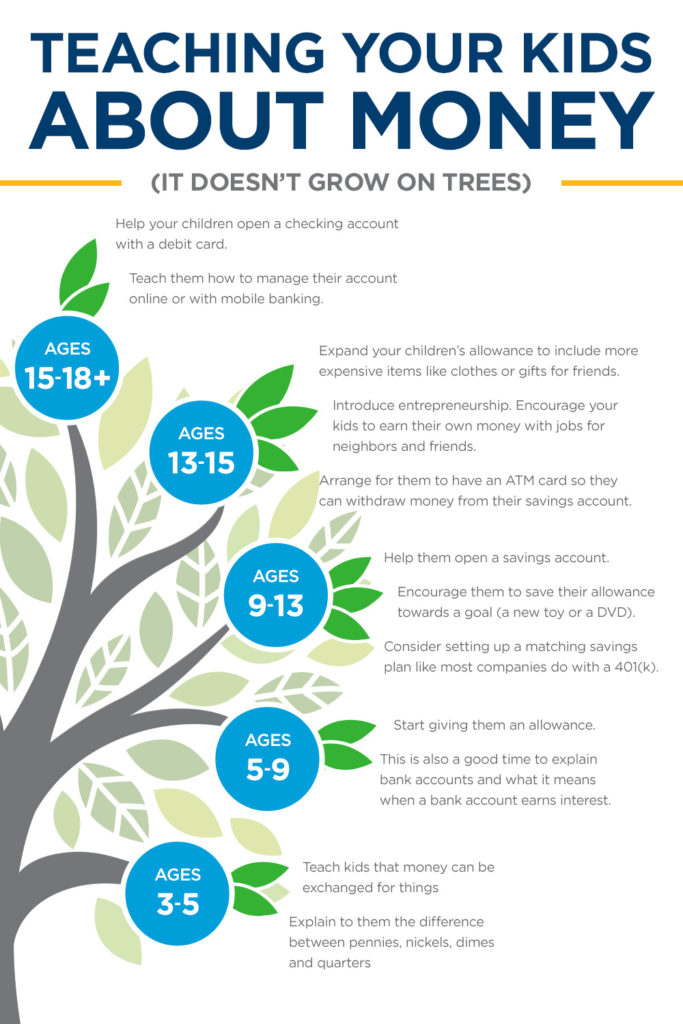
You don’t have to wait until your kids are teenagers. You can start talking to them about the basics of money as early as preschool. Here are some tips about how to talk to your kids about money at any age:
- From ages three to five you can teach kids that money can be exchanged for things. Explain to them the difference between pennies, nickels, dimes and quarters.
- From ages five to nine you can start giving them an allowance. This is also a good time to explain bank accounts and what it means when a bank account earns interest.
- From ages nine to 13 you can help them open a savings account. Encourage them to save their allowance towards a goal (a new toy or a DVD). You might even consider setting up a matching savings plan like most companies do with a 401(k). This is also a good time to start talking to them about the idea of keeping a minimum balance based on the savings account requirement. You can also introduce the concept of keeping savings in case of emergency. Even though they won’t need to pay for an emergency at such a young age, you can explain the importance of keeping a nest egg.
- From ages 13 to 15 you can expand your children’s allowance to include more expensive items like clothes or gifts for friends. This is also a good time to introduce entrepreneurship. Encourage your kids to earn their own money with jobs for neighbors and friends. Arrange for them to have an ATM card so they can withdraw money from their savings account.
- From ages 15 to 18 and up you can help your children open a checking account with a debit card. Teach them how to manage their account online or with mobile banking. You can even go old school and show them how to use a check register. This is also a good time to talk fiscal responsibility about when they go off to college. Be very clear about what expenses you will pay for which ones they will cover.
Explaining money management to your kids can start out with something as simple as giving them an allowance. If you talk to them regularly, teach by your own fiscally responsible example and give them the right tools, you will do more than teach them about money basics. You will instill in them a respect for earning and saving money that will hopefully set them on a path to being financially independent and responsible in adulthood.